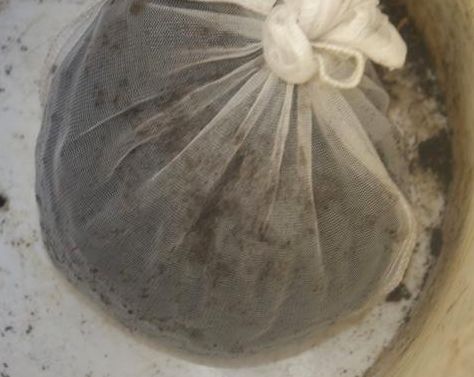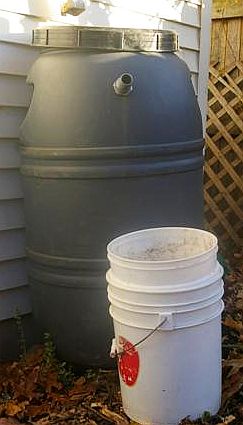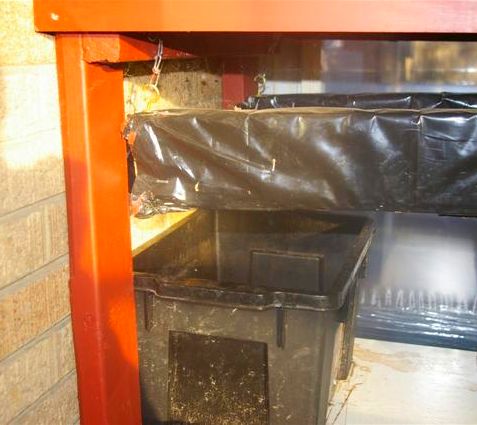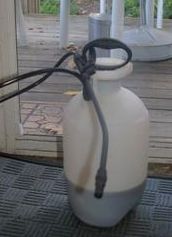
Tea Bag
Last night I talked about a need for a glossary on the GRAF, Growing Renewable Afford Food page for terms like ‘tea’ that I use all the time. Today Tegan of Emergency Digital, the wikignome for this site and many others, told me how to do such a glossary. Two other emails, one from another friend and one off a list-serv, gave me the motivation to do that and add to and improve on the GRAF page. The one from the list-serv was about purchasing a compost bin, something I do not understand the need for. With the same amount of money, or less, one could build a worm condo, an item that is essential to growing in this model. The other was from a friend who talked about purchasing a $400-$500 urban farming kit that includes no worm condo and no castings and comes with ready-made compost.
I have great respect for these other ways of organic gardening but they are different from the way of growing of Growing Power, my gardens inside and out and that of the DMZ. It made me appreciate the A for Affordable of the G.R.A.F. system

Rain Barrel & Bucket

Tea Collector Below GP Box
Now for the first word in the forthcoming glossary: “Tea”. Tea is what we call the water that has passed through castings and/or compost. Tea can be made by putting a paint-straining bag full of castings in a bucket with holes so the water can pass through to another bucket or in a rain barrel. (See the picture above.) Or it can be water that drains from the GP box in the greenhouse or water that passes through the worm condo. There are many ways to make ‘tea’ but the results are the same, living water full of healthy organisms that can water and fertilize plants healthier than any chemical mix like Miracle Gro. Castings made by worms eating compost enrich the already rich compost by 13 times. Water passing through these castings or through good compost not only keeps the casting-making process and worms alive and well, but it can be collected and put back into the soil as an organic fertilizer. Tea is organic and can be put on the leaves of plants as well as in the ground. I understand that “tea’ serves as a natural insect repellent for certain insects.
Water in the rain barrels comes off the roof of the house and garage, passes through the tea bags and goes into the garden as ‘tea’. In the winter I just let some tap-water sit in the sunroom in a watering can for a day so the chemicals in the water die. It becomes distilled water. I add some ‘tea’ already made or a ‘tea bag’ to it and create this wonderful organic fertilizer.

Tea Sprayer
Also castings are expensive if you purchase them or take time if you make them. A little bit of castings can be stretched a long way by putting a “tea bag” in the water. The living organism in castings grows and enriches the water that enriches the plant. Using castings and tea is essential to growing much in a small space. And of course, I would be remiss if I did not mention the role of the worm in the creation of tea. The worm eats the compost and enriches it into the ‘black gold’ of castings.
In an ironic twist I purchased a prayer used to spray chemicals to spray the organic tea on the houseplants and the greens in the GP box.
Now we have some new words for the glossary: castings, and worm condo, black gold. But for now all I can say is “Tea Anyone?”
Comments
(:commentboxchrono:)